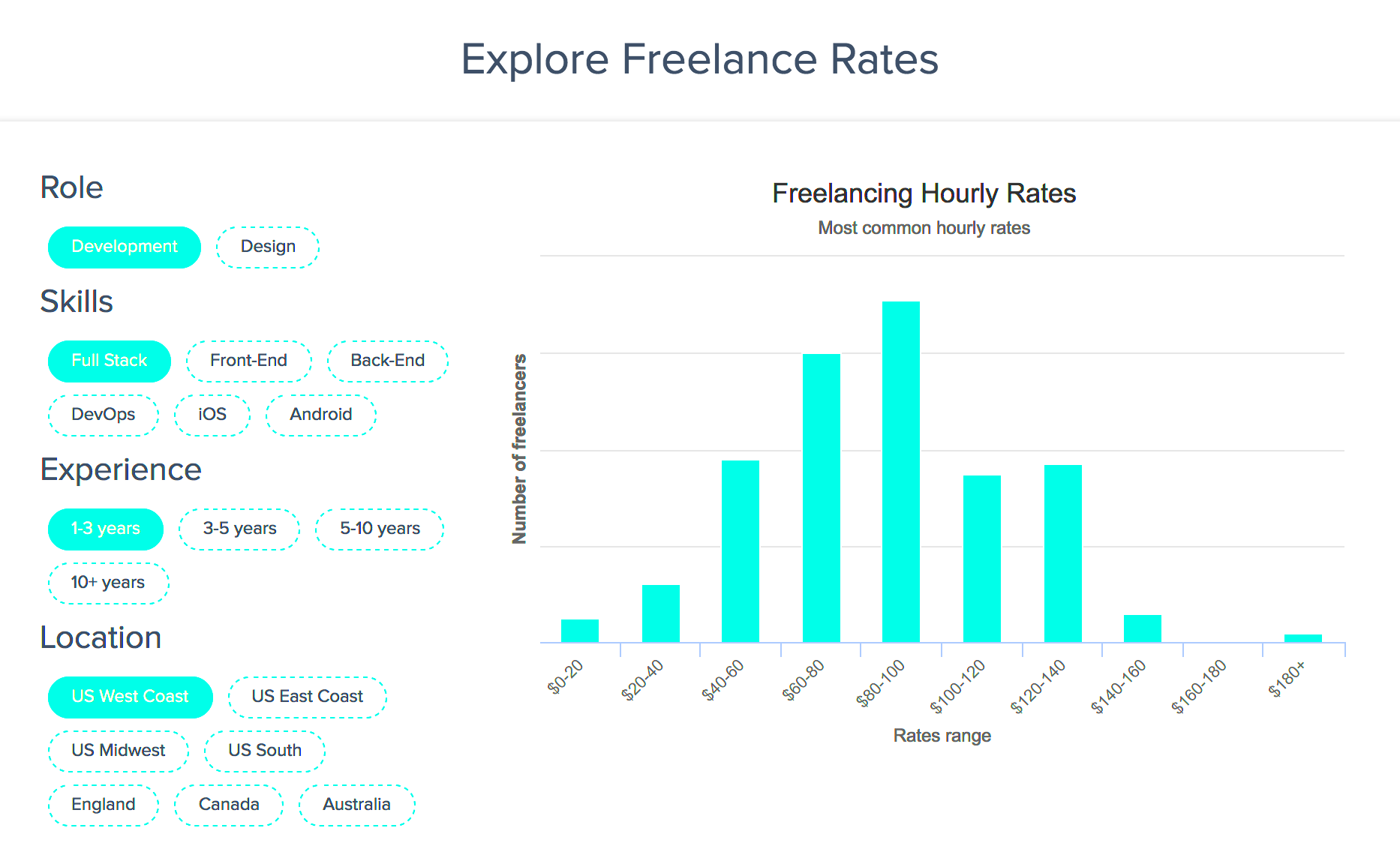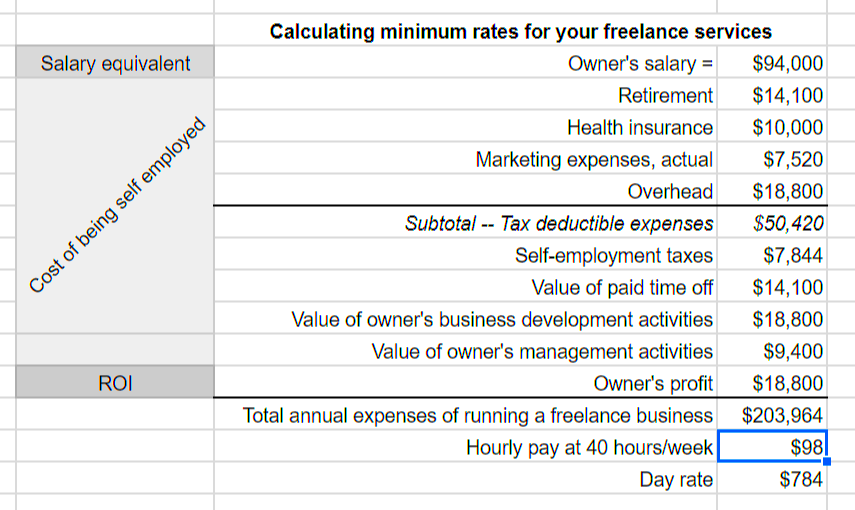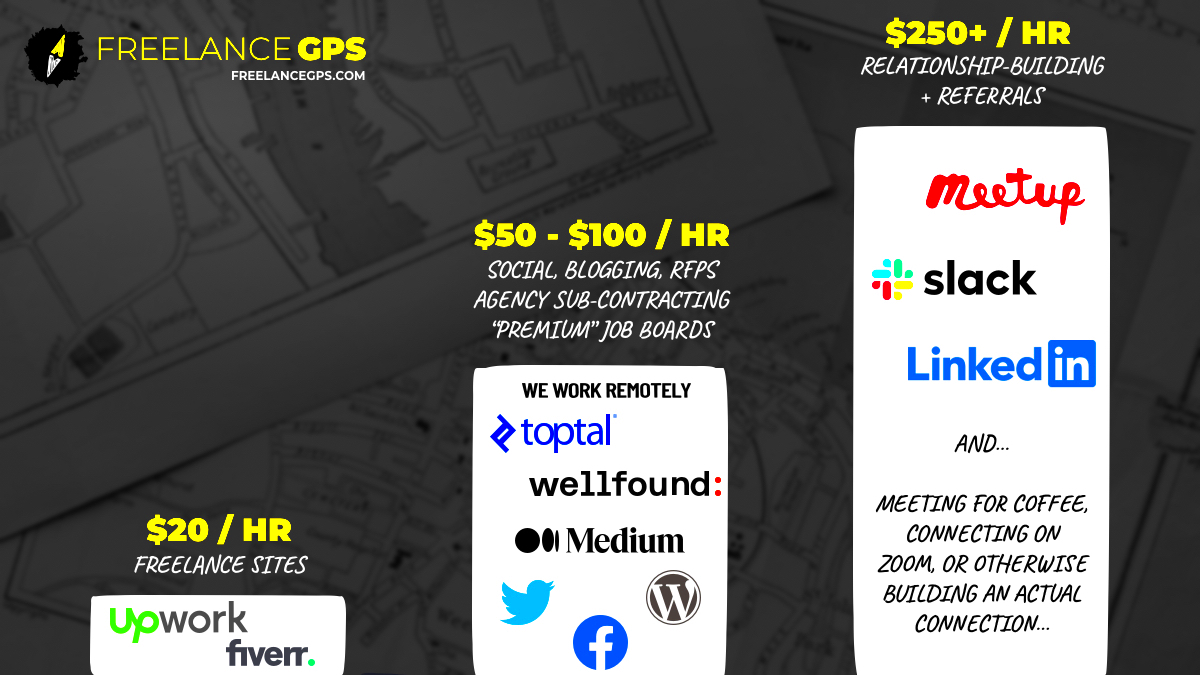Freelance web development has become a popular career choice for many skilled developers. With businesses increasingly looking for professional websites and online solutions, there is a high demand for talented developers who can build and maintain websites. Freelancing offers flexibility, the opportunity to work with diverse clients, and the potential to earn well. However, it also comes with challenges like inconsistent work and the need to continuously update skills. In this post, we'll explore how to set your rate as a freelance web developer and what factors affect your pricing.
Understanding the Role of a Freelance Web Developer

A freelance web developer is someone who builds, designs, and maintains websites on a contract or project basis, rather than as a full-time employee of a company. This role involves a wide range of tasks, from front-end development (the user interface) to back-end development (server-side logic and databases). Freelance web developers may specialize in one area or offer a full suite of services, depending on their skills.
Key responsibilities of a freelance web developer include:
- Communicating with clients to understand their website needs
- Designing the layout and structure of websites
- Writing clean, efficient code for websites and applications
- Testing websites for functionality and user experience
- Providing ongoing maintenance and support for clients
Unlike employees in traditional roles, freelancers have the freedom to choose their projects, set their own schedules, and work from any location. However, they are also responsible for managing their business, including finding clients, invoicing, and handling taxes.
Also Read This: Can I Change My Registered Location on Fiverr?
Factors That Influence the Rate of a Freelance Web Developer

When setting a rate as a freelance web developer, there are several factors to consider that can influence how much you charge. Your rate will vary based on your experience, skills, location, the complexity of the project, and the type of clients you're working with. Let’s dive into these factors:
- Experience: More experienced developers generally charge higher rates because they bring expertise and a proven track record to the table.
- Skillset: Specialized skills, such as proficiency in advanced coding languages or specific web development frameworks, can justify higher rates.
- Project Complexity: A simple website might be priced lower than a complex e-commerce platform with custom features and integrations.
- Client Type: Working with large corporations or high-profile clients might allow you to charge more compared to working with small businesses or startups.
- Location: Rates can vary based on the geographic location of both the developer and the client. Developers in high-cost-of-living areas might charge more than those in less expensive locations.
- Market Demand: If there’s a high demand for web development in a certain area or industry, you may be able to charge higher rates due to the scarcity of skilled professionals.
Overall, setting a fair and competitive rate requires considering these factors carefully. Being transparent with your clients about what is included in your rate can help build trust and ensure both parties are satisfied with the arrangement.
Also Read This: Where to Find the Fiverr List
How to Set Your Rate as a Freelance Web Developer

Setting your rate as a freelance web developer can feel like a daunting task, especially if you’re just starting out. However, it’s important to approach this strategically to ensure you’re charging enough to sustain your business while staying competitive. The right rate can help you attract clients and reflect your value as a skilled developer.
Here are a few steps to help you determine the best rate:
- Research Market Rates: Start by researching what other freelance web developers in your region or industry are charging. Platforms like Fiverr and Upwork can provide insight into what clients are willing to pay for similar services.
- Assess Your Experience: Your experience level plays a crucial role in setting your rate. Beginners may need to start with a lower rate and increase it as they gain experience and expand their portfolio.
- Consider Your Costs: Make sure to factor in business expenses such as software subscriptions, hardware, internet costs, and taxes. These will impact your bottom line, so it’s important to set a rate that covers these expenses.
- Know Your Value: Think about the value you’re offering to clients. If you have specialized skills or a unique style, don’t be afraid to charge higher rates that reflect the quality of your work.
- Test Different Rates: Experimenting with different pricing strategies can help you find what works best. If you’re unsure, start with a lower rate and gradually increase it as you gain more projects and build your reputation.
By considering these factors, you can confidently set your rates and ensure your freelance web development business is financially sustainable.
Also Read This: How to Send an Offer to a Buyer on Fiverr
Common Pricing Models for Freelance Web Developers
As a freelance web developer, there are various pricing models you can choose from, each with its own advantages and drawbacks. The right model depends on the type of project, the client’s budget, and your preferences. Here are some common pricing models:
| Pricing Model | Description | Best for |
|---|---|---|
| Hourly Rate | Charge clients based on the amount of time you spend working on a project. | Short-term or undefined projects. |
| Fixed Price | Charge a set fee for the entire project, regardless of how long it takes. | Well-defined projects with clear deliverables. |
| Retainer | Clients pay a regular fee (usually monthly) for a certain number of hours or services. | Ongoing work or maintenance projects. |
| Value-Based Pricing | Price your services based on the value you provide to the client, not just the time spent. | High-impact projects where your work will significantly benefit the client. |
Each of these pricing models has its benefits. For example, hourly rates offer flexibility, while fixed pricing provides more predictability for clients. It’s important to assess the nature of each project and choose a model that works for both you and your client.
Also Read This: How to Invest in Fiverr
How Experience and Skill Level Affect Freelance Web Developer Rates
Your experience and skill level are two of the most important factors when determining how much to charge as a freelance web developer. As you gain experience and improve your skills, you can increase your rates accordingly. Here’s how these factors influence your pricing:
- Beginners: If you’re just starting out, you might need to charge lower rates to attract clients and build a portfolio. However, this doesn't mean you should undervalue your work; consider offering a discount in exchange for testimonials or portfolio pieces.
- Intermediate Developers: After gaining a few years of experience and having a solid portfolio, you can start charging higher rates. You may also specialize in certain technologies or industries, allowing you to charge more for niche skills.
- Experienced Developers: Developers with years of experience can charge premium rates. With a proven track record, specialized skills, and a strong portfolio, clients are more likely to trust you with high-budget projects. It’s important to emphasize the value you bring to clients in these cases.
As your experience grows, it’s also essential to continuously upgrade your skills. The more you know and the more specialized you become, the higher the rates you can command. Keep in mind that clients are willing to pay more for developers who can deliver efficient, high-quality results, especially when they specialize in specific areas like e-commerce, SEO, or custom applications.
Also Read This: How to Check Impressions on Fiverr
What to Consider When Setting Your Rates
Setting the right rates as a freelance web developer isn’t just about picking a number that sounds good. It requires careful consideration of various factors to ensure that your rates reflect the quality of your work, meet your financial needs, and stay competitive in the market. Here are some important things to keep in mind:
- Your Financial Needs: You need to set rates that cover your business expenses, including software, equipment, and taxes. Think about how much you need to earn per month and divide that by the number of hours or projects you expect to complete.
- Market Research: Always do some research on what other freelance web developers are charging, especially those in your area or niche. Checking platforms like Upwork or Fiverr can give you a good idea of the going rates for different types of projects.
- Skillset and Experience: Your experience and expertise should directly affect your rates. If you’re highly skilled in a niche area of web development, such as e-commerce or WordPress, you can charge higher rates than someone just starting out.
- Client Type: Consider who your clients are. Big companies might be willing to pay more for your services, while small businesses or startups may have tighter budgets. Tailor your rates accordingly.
- Project Complexity: Larger, more complex projects (like custom web applications or large e-commerce sites) should command higher rates than simple websites or landing pages. Always adjust your rates based on the scope and requirements of the project.
- Workload: How many clients or projects can you handle at once? If you’re overloaded, you might need to increase your rates to avoid burnout. If you have fewer projects, lower rates may be necessary to attract clients.
By considering these elements carefully, you can set rates that are fair to both you and your clients, ensuring that you maintain a healthy business and continue growing in your freelance career.
Also Read This: How to Describe My Gig on Fiverr: A Comprehensive Guide
Frequently Asked Questions
Freelance web development can be a bit tricky, especially when you're just starting out. Here are some common questions that many new freelance developers have about setting rates:
- How do I know if my rates are too high or too low?
If you’re attracting clients regularly, your rates are likely in the right range. If clients are consistently negotiating or not coming your way, it may be time to adjust your rates. Researching other developers’ rates can help you gauge where you stand.
- Can I charge more for urgent or last-minute projects?
Yes, many freelancers charge a premium for rush work. If a client needs a project completed quickly, it’s fair to increase your rate to account for the extra time and effort involved.
- Should I offer discounts for long-term clients?
Offering discounts or special rates for repeat clients can help build a strong working relationship. However, make sure your discounted rate still reflects the value you’re providing and that you’re not underpricing yourself in the long run.
- What if I’m unsure about my skill level and rates?
If you’re just starting out, try offering a lower rate to attract clients and build your portfolio. As you gain experience and confidence, you can gradually increase your rates.
- How can I justify my rates to clients?
Be transparent with your clients. Explain the value you’re providing, such as the time you save them or the unique skills you bring to the table. Sharing your past work and client testimonials can also help clients understand why your rates are fair.
Conclusion
Setting your rates as a freelance web developer can be challenging, but it’s a crucial step in building a successful freelance business. By considering factors like your experience, market demand, project complexity, and client type, you can establish rates that reflect your value while remaining competitive in the market. Always remember that rates aren’t set in stone—feel free to adjust as you gain more experience, expand your skills, or change your target client base.
Freelancing offers great flexibility and potential for growth, but the key to long-term success is finding the right balance between your skills, your financial goals, and the needs of your clients. Keep learning, stay adaptable, and don’t be afraid to reassess your rates as you progress in your career.




